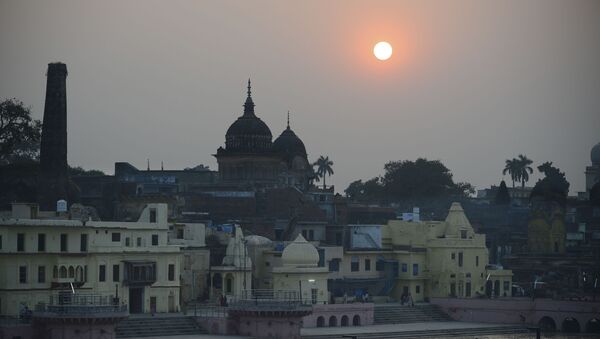The Supreme Court of India announced its verdict awarding management of the disputed religious site in the northern city of Ayodhya in Uttar Pradesh to the Hindu side while allocating an alternative plot of land to the Muslims.
After the court verdict, a letter purported to have been written by Indian Prime Minister Narendra Modi to the Chief Justice of India has been circulated by media in Bangladesh and Pakistan. New Delhi has condemned this “fake and malicious news”.
We strongly condemn those responsible for deliberately spreading such fake and malicious news, to divide communities, create disharmony and undermine friendship between the people of India and Bangladesh. https://t.co/LEdXxutzNc
— Raveesh Kumar (@MEAIndia) November 13, 2019
Earlier the Indian Mission in Dhaka also dismissed the campaign as “…most egregious and wrong on the part of those who are deliberately circulating fake and incorrect information to create misunderstanding about India in the public domain.”
Several Pakistani online media outlets were caught sharing the fake news, in what has widely been perceived as an attempt to deride the Indian Prime Minister and the top judiciary as “communal” and focused on appeasing “Hindu extremists”.
In a series of tweets, Prime Minister Modi had declared that “Be it Ram Bhakti or Rahim Bhakti, it is imperative that we strengthen the spirit of Rastra Bhakti,” meaning devotion to Lord Ram or Allah, it is imperative to strengthen devotion to the nation.
The Honourable Supreme Court has given its verdict on the Ayodhya issue. This verdict shouldn’t be seen as a win or loss for anybody.
— Narendra Modi (@narendramodi) November 9, 2019
Be it Ram Bhakti or Rahim Bhakti, it is imperative that we strengthen the spirit of Rashtra Bhakti.
May peace and harmony prevail!
SC’s Ayodhya Judgment is notable because:
— Narendra Modi (@narendramodi) November 9, 2019
It highlights that any dispute can be amicably solved in the spirit of due process of law.
It reaffirms the independence, transparency and farsightedness of our judiciary.
It clearly illustrates everybody is equal before the law.
The halls of justice have amicably concluded a matter going on for decades. Every side, every point of view was given adequate time and opportunity to express differing points of view. This verdict will further increase people’s faith in judicial processes.
— Narendra Modi (@narendramodi) November 9, 2019
The court case is related to the ownership of the land, with Hindus believing that the site of the mosque is the birthplace of one of their most revered deities, Lord Ram. Muslims, for their part, insist that they have worshipped at the 16th century Babri mosque for centuries until the idol of the Ram deity was covertly placed inside the mosque in 1949.




